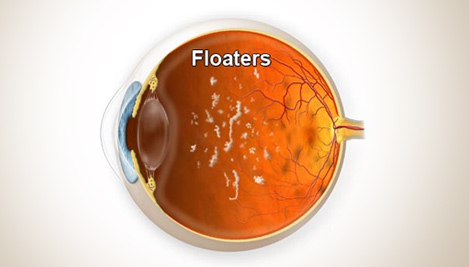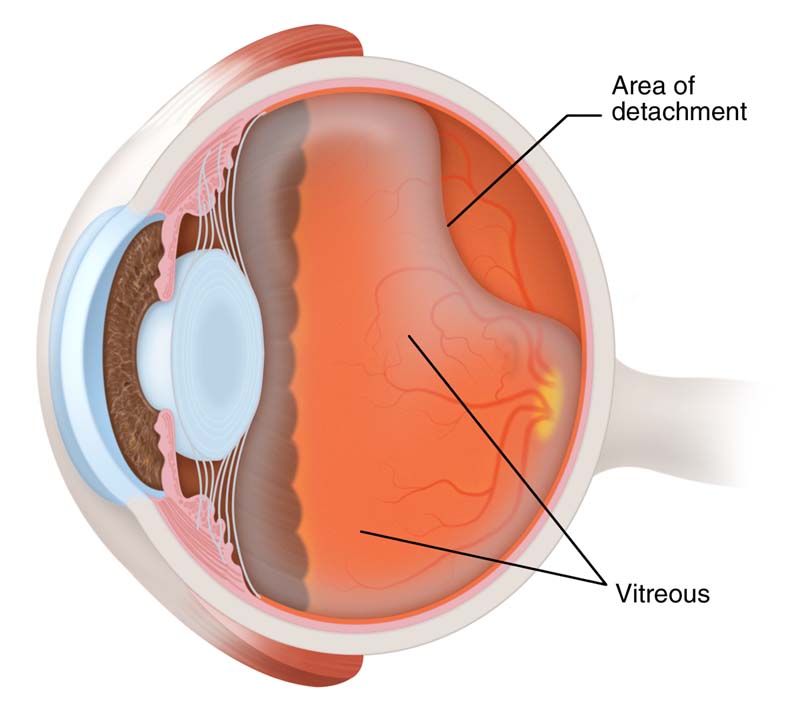Flashes and Floaters

What are flashes and floaters?
You may sometimes see small specks or clouds moving in your field of vision. These are called floaters. You can often see them when looking at a plain background, like a blank wall or blue sky.
Floaters are actually tiny clumps of cells or material inside the vitreous, the clear gel like fluid that fills the inside of your eye.
While these objects look like they are in front of your eye, they are actually floating inside it. What you see are the shadows they cast on the retina, the layer of cells lining the back of the eye that senses light and allows you to see. Floaters can appear as different shapes, such as little dots, circles, lines, clouds or cobwebs.
When the vitreous gel pulls on the retina you may see what looks like flashing lights or lightning streaks. These are called flashes. You may have experienced this same sensation if you have ever been hit in the eye and seen "stars". The flashes of light can appear off and on for several weeks or months.
As we grow older, it is more common to experience floaters and flashes as the vitreous gel changes with age gradually pulling away from the inside surface of the eye.

Causes of Flashes and Floaters.
When people reach middle age, the vitreous gel may start to shrink, forming clumps or strands inside the eye. The vitreous gel pulls away from the back wall of the eye, causing a posterior vitreous detachment. This is a common cause of floaters.
Floaters and flashes are also caused by posterior vitreous detachment, where the vitreous gel pulls away from the back of the eye.
This condition is more common in people who:
- Are near sighted;
- Have undergone cataract operations;
- Have had YAG laser surgery of the eye;
- Have had inflammation (swelling) inside the eye.
- Have had an injury to the eye.
The appearance of floaters and flashes may be alarming, especially if they develop very suddenly. To find out if a retinal tear or detachment is occurring, you should call Mr. Golchin right away if you notice the following symptoms, especially if you are over 45 years of age, have had an injury to your eyes or head or if you have substantial near sightedness:
- A sudden increase in size and number of floaters
- A sudden appearance of flashes
- Having a shadow or curtain appear in the periphery (side) of your field of vision
- Seeing a grey curtain moving across your field of vision
- Having a sudden decrease in your vision
Flashes and floaters treatment
Vitreous floaters may be a symptom of a tear in the retina which is a serious problem. If a retinal tear is not treated the retina may detach from the back of the eye. The only treatments for a detached retina are a laser procedure or surgery.
Other floaters are harmless and fade over time or become less bothersome, requiring no treatment. Surgery to remove floaters is almost never required.






 Mr. Behrooz Golchin
Mr. Behrooz Golchin